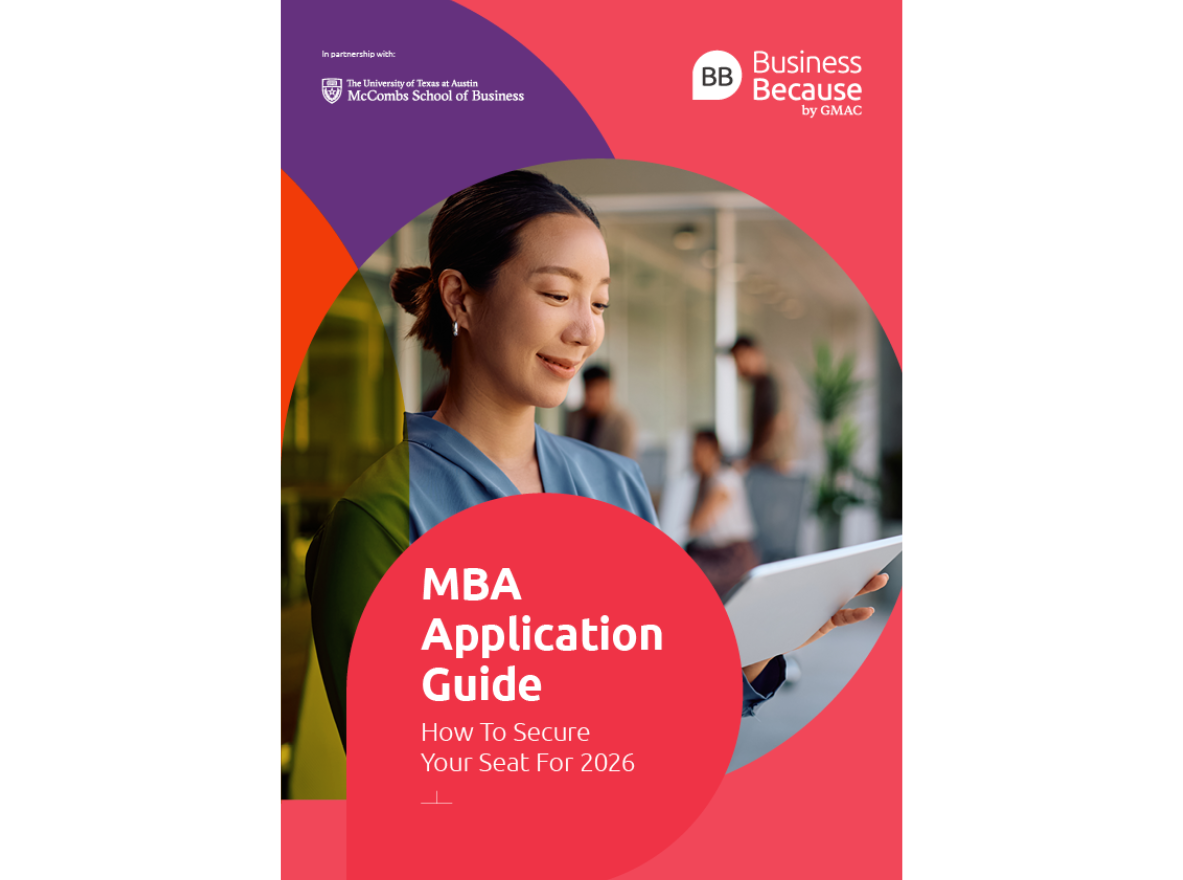Few people are better qualified to give MBA application tips than Luke Anthony Peña. As former director of admissions at Stanford Graduate School of Business and Tuck School of Business, he’s now principal, consulting and business development at Menlo Coaching.
Luke has personally reviewed more than 15,000 MBA applications and helped to curate entire MBA classes. Recently he led admissions for Stanford’s prestigious Knight-Hennessy Scholars, overseeing a global pool of 8,000 applicants with an admit rate below 1%.
So, at a time of uncertainty, particularly around visas for international students hoping to study in the US, Luke is the perfect person to turn to for advice around MBA application in 2025-26.
BusinessBecause by GMAC editor Siân Phillips spoke to Luke to find out whether now is a good time to apply to b-school in the US, and what MBA hopefuls can do to increase their likelihood of success if they go ahead and apply.
Here are five things Luke (pictured below) shared that all prospective MBA students need to know ahead of applying in the upcoming cycle:
1. Now might be a great time to apply to business school in the US

This is an unprecedented time in the US for MBA admissions. For international students there is an understandable fear about the viability of being admitted, and being granted entry into the country. [However], I can say with great certainty that US schools are committed to having as many international students in the community as possible.
For international students, I think that if you are willing to clarify your goals and navigate the uncertainty, this is a potentially great year to apply, because others will have exited the pool, and you will have less competition than you might in a different year.
For domestic students, we are seeing more attention to the practicalities of the job market. With economic uncertainty and economic volatility in the US, domestic students are increasingly paying attention to factors like job placement and the resources a school has to support them in their dedicated career path.
2. Use AI in your application but know how to use it in the right way
AI is a tremendous tool, and I believe that applicants should consider using all the tools that are available to them. It would be foolish for applicants to ignore the influence of AI as frankly, many business school curriculums are now incorporating AI into the course of study. Many professional jobs are expecting recent MBA graduates to bring a fluency in AI into the job, and to be able to use the tools.
So, I am a believer that applicants should understand the tool [AI], understand how it works and be able to use it for tasks that may be helpful, including research about schools, including proofreading, catching typos, catching errors. [However,] I worry about candidates who rely on tools to do the work for them and AI has not, at this moment in time, in my opinion, been able to produce entire portions of application content that replicate the feel, the nuance, the spirit that is clearly evident when somebody puts their own human intuition into the composition of the narrative.
So, AI is a tool: use the tool, understand how to use the tool, and realize the limitations that the tool has.
3. The most important part of applying is your letter of recommendation
I take the position that the recommendation letters are the single most important part of a successful application. I think applicants should be thinking very critically about who will endorse them as recommenders. This is the part of the application where somebody else vouches for your performance and your potential. And I candidly think some applicants overlook the significance of these particular endorsements.
So, if you already have a sense of who will be your recommenders, start to talk with them as early as possible about your path and your plans and how they can support you. And if you have not identified recommenders, start to brainstorm who in your professional and potentially your personal community would be able to endorse. The recommenders are paramount.
Applying for a top MBA?
Download our MBA Application Guide
4. Choose your exam—and prepare well
I think candidates should certainly do their diligence on the exams and select the exam that they feel optimizes their performance, and in which they can score the highest in the eyes of the school.
I do think that the GMAT has particular advantages for a number of candidates in the pool, particularly candidates who may not have demonstrated previously that they have the quantitative exposure and the quantitative depth. The GMAT remains the gold standard in MBA admissions for demonstrating quantitative proficiency and skill.
We at Menlo strongly encourage people to use the official resources to be able to prepare for the exam. Preparation is a tremendous boost to performance and preparation takes time, effort, study, and GMAC produces a tremendous amount of resources to make this possible.
5. Schedule your school visits at the optimum time
Optimizing the opportunities to network and engage with schools is vital. The reason this should be done early is because there are distinct points on the calendar where this can be most effective.
I sadly see applicants wait until the summer before Round 1 deadlines to think about engaging schools. But at that point, the students are away doing internships if they're in a two-year program. Classes are not available to observe. Many faculty go away for the summer. So taking time to visit a campus in the final weeks before application in a summer is visiting what is a largely empty campus, perhaps sitting through an admissions presentation, but getting very little of the conversations and the feel for what the culture and the environment is like. That's to say nothing of the effort required to plan trips and set aside time on the calendar in the midst of a busy work schedule to go see the schools and not saving it until the end.
For more insider tips on how to ace the MBA application process, download our MBA Application Guide | How To Secure Your Seat For 2026




